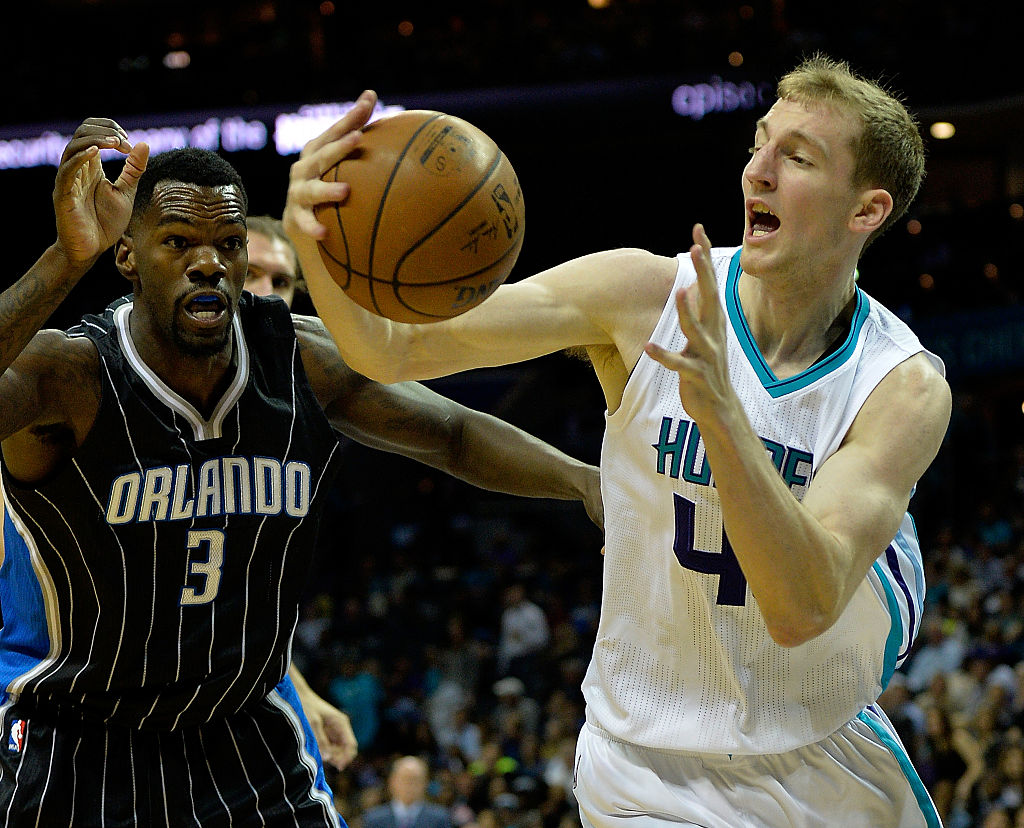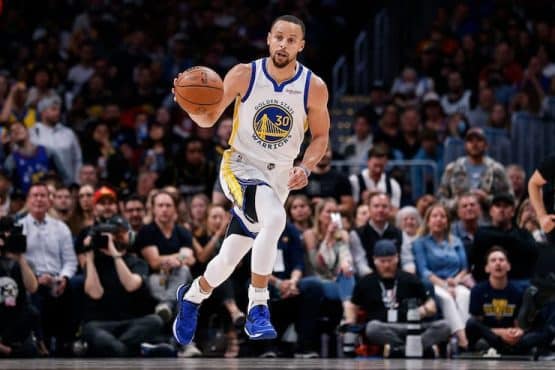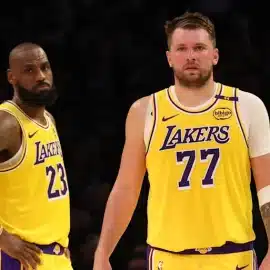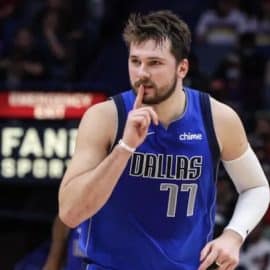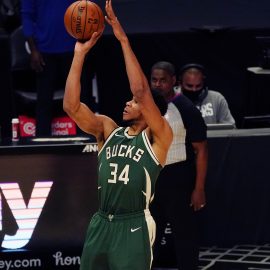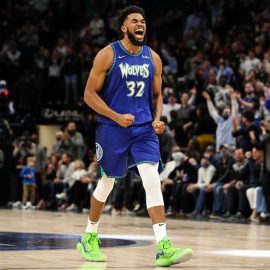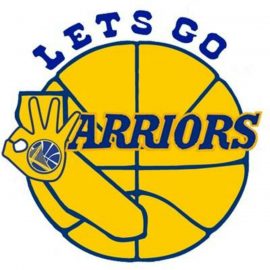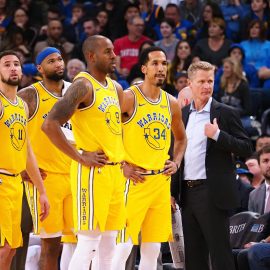Despite the addition of Dwight Howard, Cody Zeller is still the X-Factor for the Charlotte Hornets.
In 2015-16, Charlotte went 48-34 before falling to Miami in seven games during the first round of the playoffs. It was the team’s best campaign since the turn of the century, and it appeared to mark a return to the East’s upper echelon.
Or so they thought.
Let’s not forget: it took the expansion Hornets four years (1989-1992) to earn their first playoff berth, after which they qualified in seven of the next 10 seasons. Then the club left for New Orleans in 2002, and the Bobcats were born in ’04. The Cats reached the playoffs just twice over the course of a decade, and they were swept both times they dared to do it.
In 2016-17, the Hornets looked more like the Bobcats. There were a lot of factors, but perhaps the most detrimental was their inability to win without starting center Cody Zeller, who missed exactly 20 games for the second time in his career.
Charlotte managed just a 3-17 record when Zeller sat, a clear indicator that the Hornets lacked the necessary depth down low. And so, this summer they traded Miles Plumlee, Marco Belinelli, and the 41st pick for Howard and the 31st.
It’s certainly safe to assume that Dwight Howard will draw the starts. But Zeller’s role will still be vital.
A starting lineup of Kemba Walker, Malik Monk, Nic Batum, Michael Kidd-Gilchrist, and Howard leaves a lot to be desired in terms of floor spacing at the 4 and 5. Switching Marvin Williams for MKG and bringing the latter off the bench to play alongside Zeller would help the offense. Nevertheless, Marvin is coming off a down year, and neither he or Nic are slowing the league’s top wings anymore. A fully-engaged Howard could make up for an otherwise weak defense, but it’d be surprising to see coach Steve Clifford relegate MKG to a reserve role after he started 81 games last year.
Based on this tricky situation, one could call Clifford the X-Factor. But something tells me that Zeller is the guy to keep an eye on. Howard’s recent accomplishments (especially in Houston) have been belittled, but there’s no denying that his mental focus has waned at times during each of his last three stints (with the Lakers, Rockets, and Hawks). I don’t think it’s insane to suggest that Howard and Zeller may be best off splitting the 48 center minutes right down the middle.
If we throw away the shortened 2011-12 campaign, Howard has appeared in at least 71 games in 11 of 12 seasons. He has been extremely durable, but Dwight turns 32 in December. If the Hornets want to keep Howard fresh for the playoffs and maximize his value over the final two years of his contract, Cody should still see plenty of playing time.
Furthermore, Zeller is far too solid to be fighting for 20 minutes per night while Howard takes on 28. Four minutes per game might not seem like a big deal, but over time it all adds up. Howard and Clifford have a good relationship from their days in Orlando, and the former MVP candidate is still a borderline All-Star when he’s at his best. But Zeller is an underrated key cog, and Clifford shouldn’t hesitate to stick with him down the stretch sometimes. There will be nights that Cody has it and Dwight doesn’t, and Clifford will have to recognize when that’s the case.
Howard is in a great position to succeed so long as he’s willing to accept his role as a screen-setter and rim-diver on offense. If there’s anyone who can convince Dwight to sacrifice for the sake of the squad, it’s probably Steve Clifford.
And if there’s anybody who can push Howard for minutes and inspire him to fill a role, it’s Cody Zeller. The ultimate glue guy who takes pride in doing the little things and doesn’t mind getting dunked on, Zeller is Charlotte’s X-Factor.
Add The Sports Daily to your Google News Feed!
